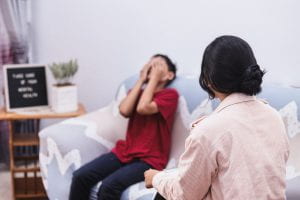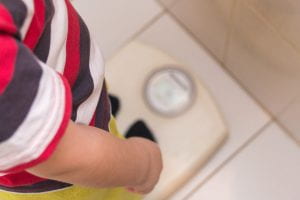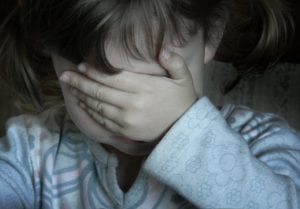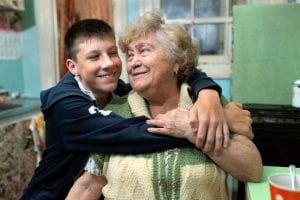 It’s well-established that youth mental health has suffered in recent years—with wide-ranging factors contributing to the problem including the proliferation of social media among young people and the isolation created by the COVID-19 pandemic. [Read more…]
It’s well-established that youth mental health has suffered in recent years—with wide-ranging factors contributing to the problem including the proliferation of social media among young people and the isolation created by the COVID-19 pandemic. [Read more…]
What We Know About Youth Mental Health Visits to the ER
The Benefits of Mindfulness Education In Schools
 You have heard by now that teens in the U.S. are struggling with mental health more than ever before. A survey from the U.S. Centers for Disease Control and Prevention (CDC) conducted in 2021 found 44% of teens experienced feelings of sadness or hopelessness that prevented them from participating in normal activities. Almost 20% of teens said they had considered suicide, and 9% said they attempted suicide. Research finds these problems are more pronounced among lesbian, gay, and bisexual teens. [Read more…]
You have heard by now that teens in the U.S. are struggling with mental health more than ever before. A survey from the U.S. Centers for Disease Control and Prevention (CDC) conducted in 2021 found 44% of teens experienced feelings of sadness or hopelessness that prevented them from participating in normal activities. Almost 20% of teens said they had considered suicide, and 9% said they attempted suicide. Research finds these problems are more pronounced among lesbian, gay, and bisexual teens. [Read more…]
New Guidance Promotes Treating Childhood Obesity
 The American Academy of Pediatricians is recommending a new approach to childhood obesity that addresses the condition as a complex disease and recommends intense behavioral treatment.
The American Academy of Pediatricians is recommending a new approach to childhood obesity that addresses the condition as a complex disease and recommends intense behavioral treatment.
Twenty-one of the nation’s top experts in childhood health developed new guidelines after reviewing the body of evidence on childhood obesity; this is the first time in 15 years the group has addressed the topic. [Read more…]
How Kids Learn To Read
 Even though it’s the dog days of summer vacation, many schools across the country are getting ready to bring students back into the classroom — and that means giving serious thought to the best ways to teach the youngest students to read. [Read more…]
Even though it’s the dog days of summer vacation, many schools across the country are getting ready to bring students back into the classroom — and that means giving serious thought to the best ways to teach the youngest students to read. [Read more…]
Parenting Programs Can Help Prevent Child Abuse
 Child abuse remains a serious problem: Nearly 700,000 children are abused in the U.S annually. No one needs an academic study to understand that abuse and neglect take a terrible toll on young people, their families, and society. We now have clear evidence that child abuse has long-term effects on its victims’ mental and physical health throughout their lives. [Read more…]
Child abuse remains a serious problem: Nearly 700,000 children are abused in the U.S annually. No one needs an academic study to understand that abuse and neglect take a terrible toll on young people, their families, and society. We now have clear evidence that child abuse has long-term effects on its victims’ mental and physical health throughout their lives. [Read more…]
 A sweeping new advisory from the U.S. Surgeon General
A sweeping new advisory from the U.S. Surgeon General
 In modern society, most of us live in silos surrounded by people similar to us; this applies across many factors including race and ethnicity, socioeconomic status, and age. In fact, young people and even middle-aged adults today have less contact with older adults than ever before in human history.
In modern society, most of us live in silos surrounded by people similar to us; this applies across many factors including race and ethnicity, socioeconomic status, and age. In fact, young people and even middle-aged adults today have less contact with older adults than ever before in human history. 





